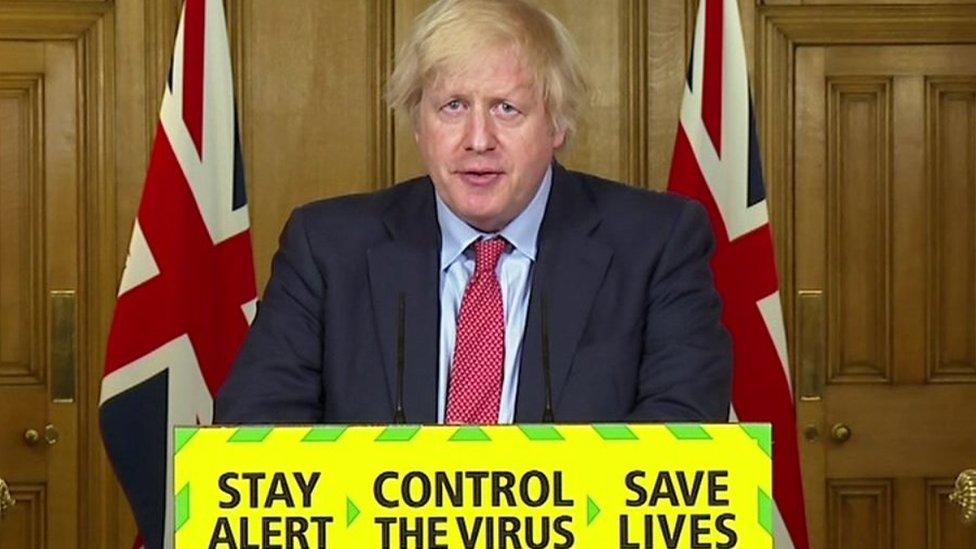Coronavirus: People living alone at risk of loneliness
- Published

Jan Maddox has not been able to see her partner since the day before lockdown.
"For the last three months, the only living thing I've touched is a dog."
For people living alone like Jan Maddox, 71, the risks of loneliness in lockdown are significantly greater, according to data.
Boris Johnson has announced that, in England, adults living alone or single parents can form a "support bubble" with another household.
But that's not the case in Wales, with Cardiff Bay saying changes will only be made when it's safe to do so.
And Jan, whose partner lives in the Midlands, is starting to struggle.
"I did have a terrific social life," she said.
"I was always out with friends, pub quizzes, music - everything. That all stopped. It's been a very lonely time."
Jan, from Newport is one of nearly eight million people in the UK who live alone. They are a group at significantly greater risk, external of loneliness during lockdown.
"I have a lot of texts from friends, and people ring up, from that perspective it's been really good," she said.
"At the beginning we managed alright. But now we're three months in... I think mentally we're getting a bit stretched."
Wales' next lockdown review is due on 18 June, but it is not clear whether there will be similar support bubble measures introduced.
New ONS data, external showed working-age adults living alone are at greater risk of lockdown loneliness than older people, and those aged 16-24 more than twice as likely to have experienced it than those aged 55-69.

Craig Johnson says living alone during lockdown has been "draining"
Craig Johnson, 29, lives in Cardiff and says there's a "tension" between what people living alone would like to see on an individual level, and what "the collective societal thing needs to be".
"I live alone in a small flat. In normal times I would've largely just come home to eat, come home to sleep.
"The rest of the time I'm either working in an office with colleagues, with friends or I'm in a pub, or a restaurant or café, with friends, or friends are coming here for food.
"Prior to March every bit of what made my life happy, every positive thing to look forward to during the week are the kind of things not now allowed - and with good reason. All of my life was non-essential social and close contact.
"From a public health angle, I support the fact they aren't allowed. But it's kind of follows that if everything I did that was a good thing in my life, I can't now do, that has knock-on effects for how happy and mentally healthy you feel.
"Draining I think is the word."
Craig said he broadly supported the Welsh Government's "more cautious approach".
He added: "The UK government has been talking about quarantine corridors between the UK and other countries so that people could have holidays in Portugal or in Spain. I watched that thinking: 'I've not had a hug for three months.' Can we balance the priorities a little bit?"
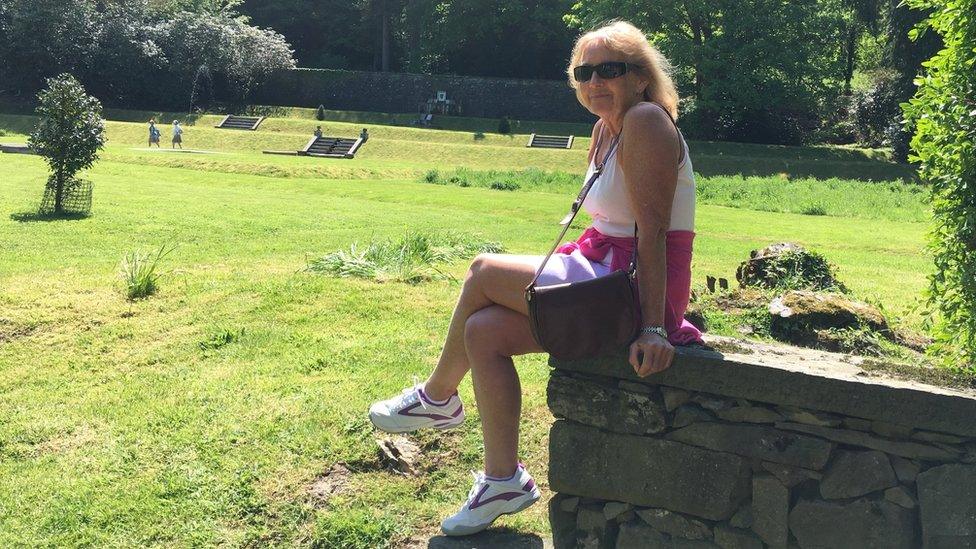
Julia Lloyd says loneliness in lockdown has been "immense" without friends living nearby.
For Julia Lloyd, 66, who lives inland from Colwyn Bay, the differences in lockdown rules between England and Wales have made things harder.
"You accept it, you accept it, you accept it. But then when you hear what England are getting you think, 'hang on a minute. Why can they do that and I can't?'."
Julia said before lockdown she had a "really good social life" but has felt "really shutdown" since and has experienced anxiety attacks.
"Because I live out in the country and I don't have any neighbours - I just don't see another human being. For 14 weeks, the only other person I've seen is the postman or a food delivery driver.
"I have some days I just get so down I spent half the day crying, because I just don't see when I'm going to be able to see people or do anything.
"I'm lonely, I don't see anybody. All I see is sheep.
"I have times I feel like I am being punished for abiding by all the rules and regulations."
Mental health crisis
Simon Jones, head of policy at Mind Cymru, said: "The coronavirus pandemic is as much a mental health crisis as it is a physical one.
"People are really struggling with isolation, stress, grief, financial worries and fears about the future.
"People who live alone have been particularly affected by lockdown, and we know that loneliness is a real problem."
He said it is "especially important" to reach out to people who live alone at the moment.
"A good place to start is to ask them how they are, and what support they need, and listen non-judgementally to their response."
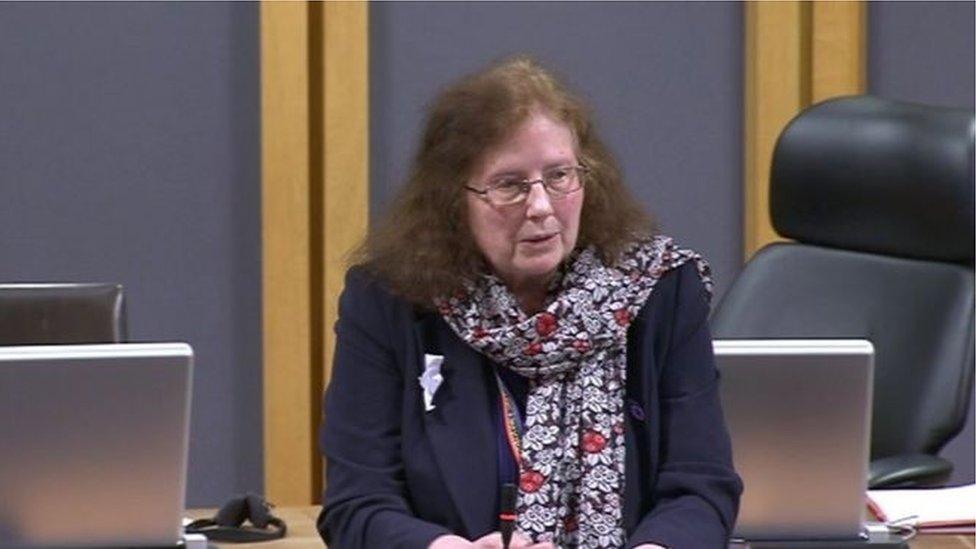
Julie Morgan MS launched the Welsh Government's loneliness strategy in February.
Before the lockdown began, the Welsh Government launched a loneliness strategy, including a fund of £1.4m over three years to help tackle it.
Julie Morgan MS, Deputy Minister for Health and Social Services, said £440,000 of this has been given to a scheme to tackle loneliness in older people at this time - by pairing them up with volunteers to speak to weekly.
But she acknowledged loneliness during lockdown is an issue particularly affecting young people.
"Obviously, the physical health of people is the primary concern. But we are aware that the longer it goes on, it does have an effect on people's mental health.
"So all of the decisions we make are a fine balance between those two - we are trying to do all we possibly can to mitigate loneliness and the inevitable mental health problems that arise from that."
A Welsh Government spokesman said: "Ministers review all the restrictions in place at each review period - and then decide what, if anything, can be changed.
"Our focus is on helping to save lives."
Politics Wales is on BBC 1 Wales at 10:15 BST on 14 June
- Published27 April 2020
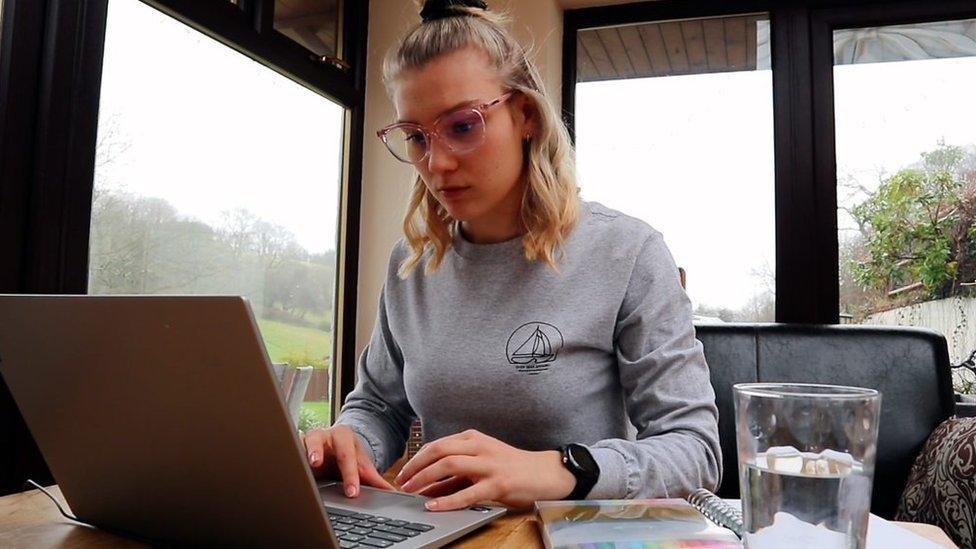
- Published17 May 2020
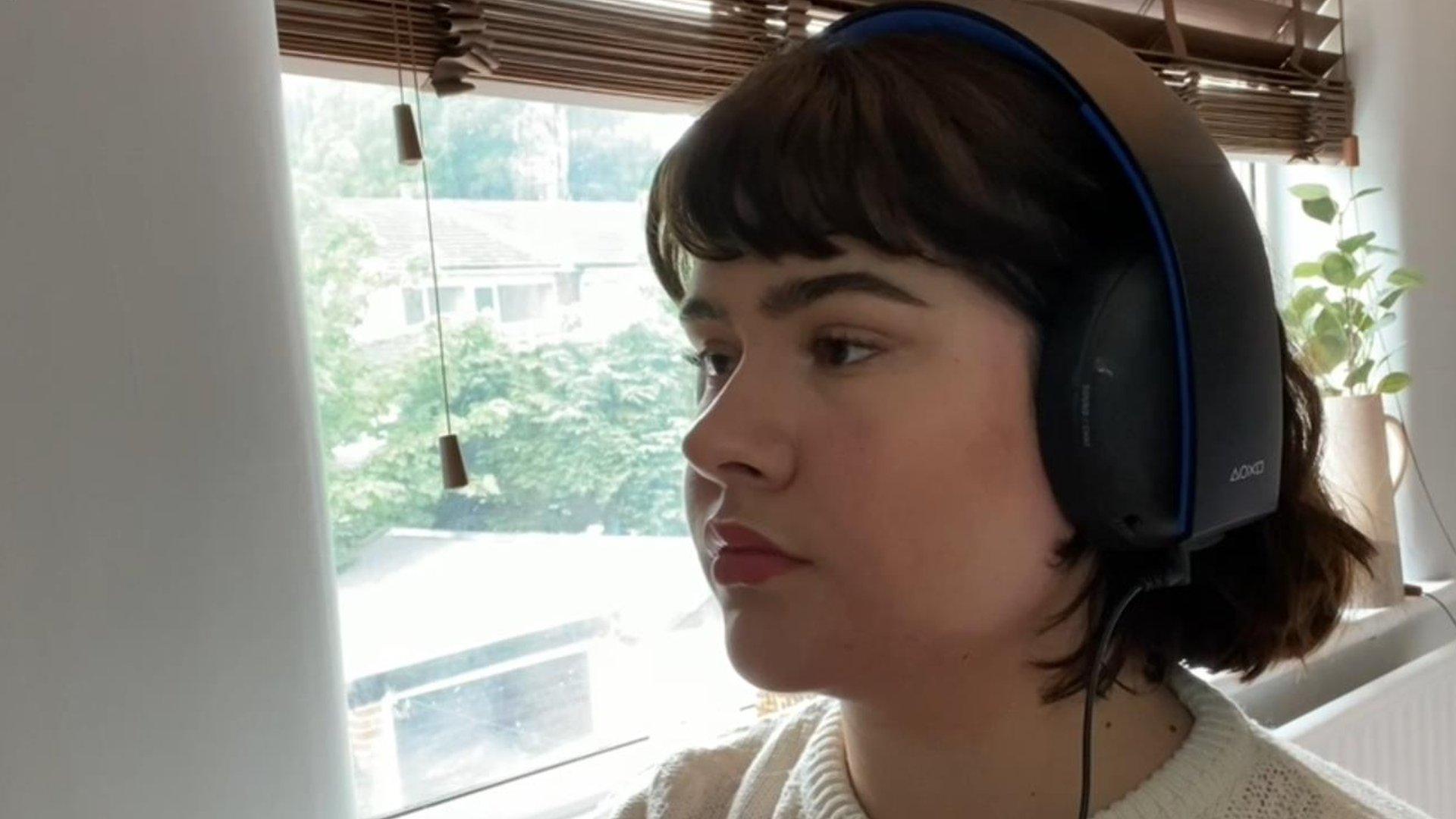
- Published10 June 2020
